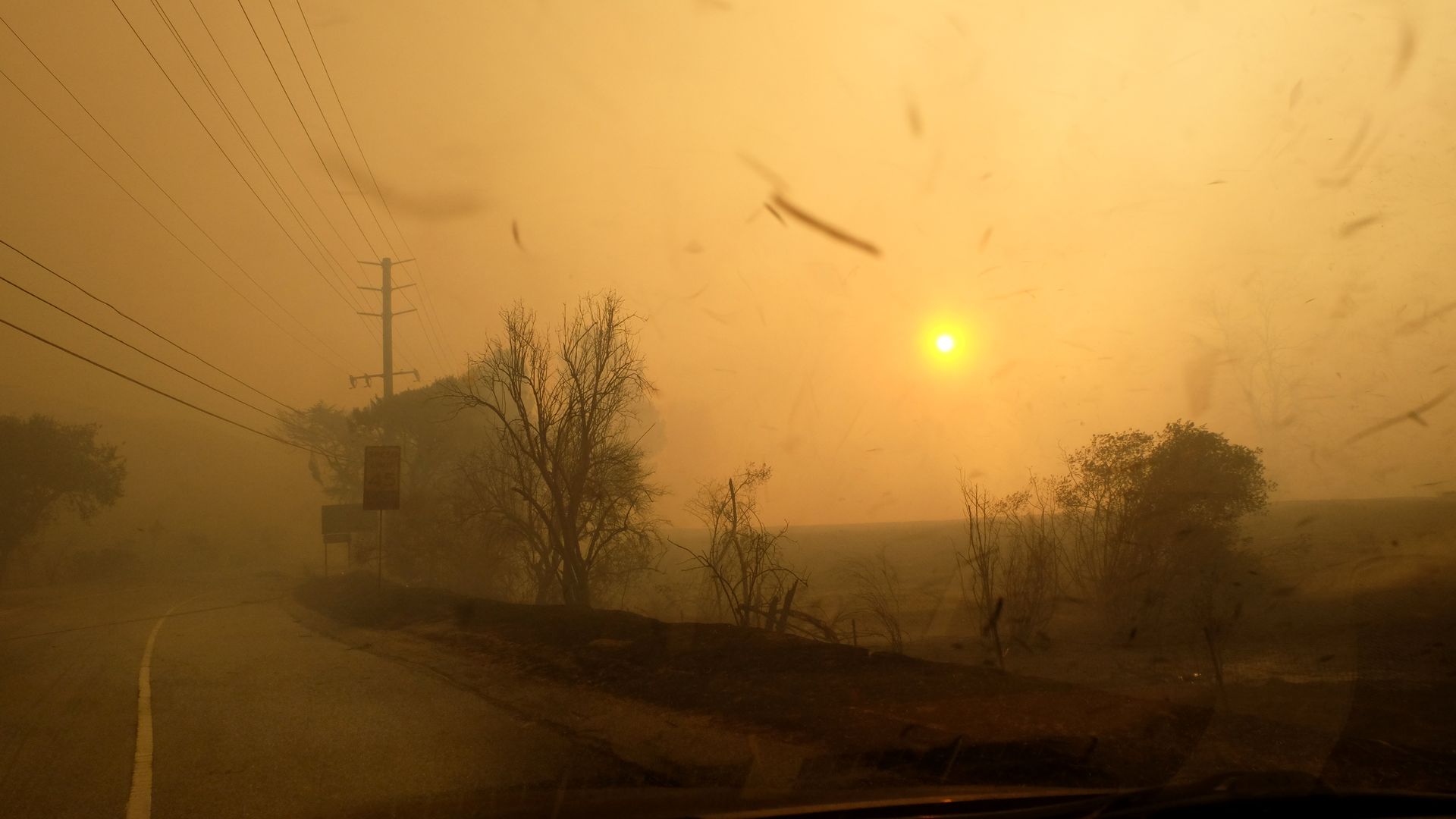Health effects from the California wildfires — mainly from stress, inhalation of small particulates and the disturbance of people's health care needs — may reverberate for some time after the fires are finally smothered out.
Why it matters: Once people are situated in an area away from the fire, people need to take steps to ensure they are not breathing the smoke and that they are handling the stress in a healthy manner. As health officials declare a public health emergency in California, they also warn people in areas near the wildfires to limit their time outdoors.
Background: There's two main fires currently ravaging California — the Camp Fire north of Sacramento and the Woolsey Fire in Malibu — which together are known to have killed at least 58, displaced more than 200,000, and caused billions in damage.
- The smoke from these fires has covered large parts of California, particularly in the Bay area.
- Sometimes wildfires can smolder for weeks, warns University of Washington-Bothell's Daniel Jaffe.
- Virginia Tech's Klaus Moeltner and his research team posted a 2013 study that showed health issues can be linked to fires as far as 200–300 miles from the impact area.
"The economic health costs from wildfire smoke, in terms of hospitalizations or doctor visits, can add up quickly if large population hubs are affected. There are other, more hidden costs that have yet to be estimated, such as cancelling outdoor or sports events, and not being able to perform outdoor work."
— Klaus Moeltner tells Axios
Three of the biggest health concerns for people near the California fires...
1. Smoke inhalation. The main concern revolves around what's called fine particulate matter, or PM2.5, which is so small it can easily be breathed in and lodge deep into the lungs. These require specific masks to filter out.
- Smoke can exacerbate and sometimes trigger issues like cardiovascular problems and headaches. Especially vulnerable are young people, older people, pregnant people, and people with pre-existing conditions like asthma or with diseases like COPD.
- Some report long-term exposure to PM2.5 may cause "increased rates of chronic bronchitis, reduced lung function and increased mortality from lung cancer and heart disease."
2. Stress. The reality or even the threat of fire eradicating lives, property and livelihoods is extremely stressful, but there are steps people can take to help.
"Based on my own experience last year ... if you are in smoke for days on end, it is very stressful. For one thing, your personal environment has just been invaded by this."
— Daniel Jaffe
3. Disruption of health care and living situations.
- As of Tuesday, HHS reported the wildfires had forced the evacuation of at least 2 hospitals and 8 other health care facilities, all of which can disrupt needed medical care.
The big picture: "We'll have to see whether this is a short-term or long-term trend. We don't know yet," Jaffe says. While Jaffe's study published July in PNAS shows most cities improved their air quality over the past 30 years, the noted exception is of areas near wildfires.
Let's block ads! (Why?)
https://www.axios.com/wildfires-cause-breathing-stress-medical-problems-d1bed067-ccbc-44d0-ba88-70c39629a375.html
Bagikan Berita Ini















0 Response to "Wildfires cause more than breathing problems across California"
Post a Comment